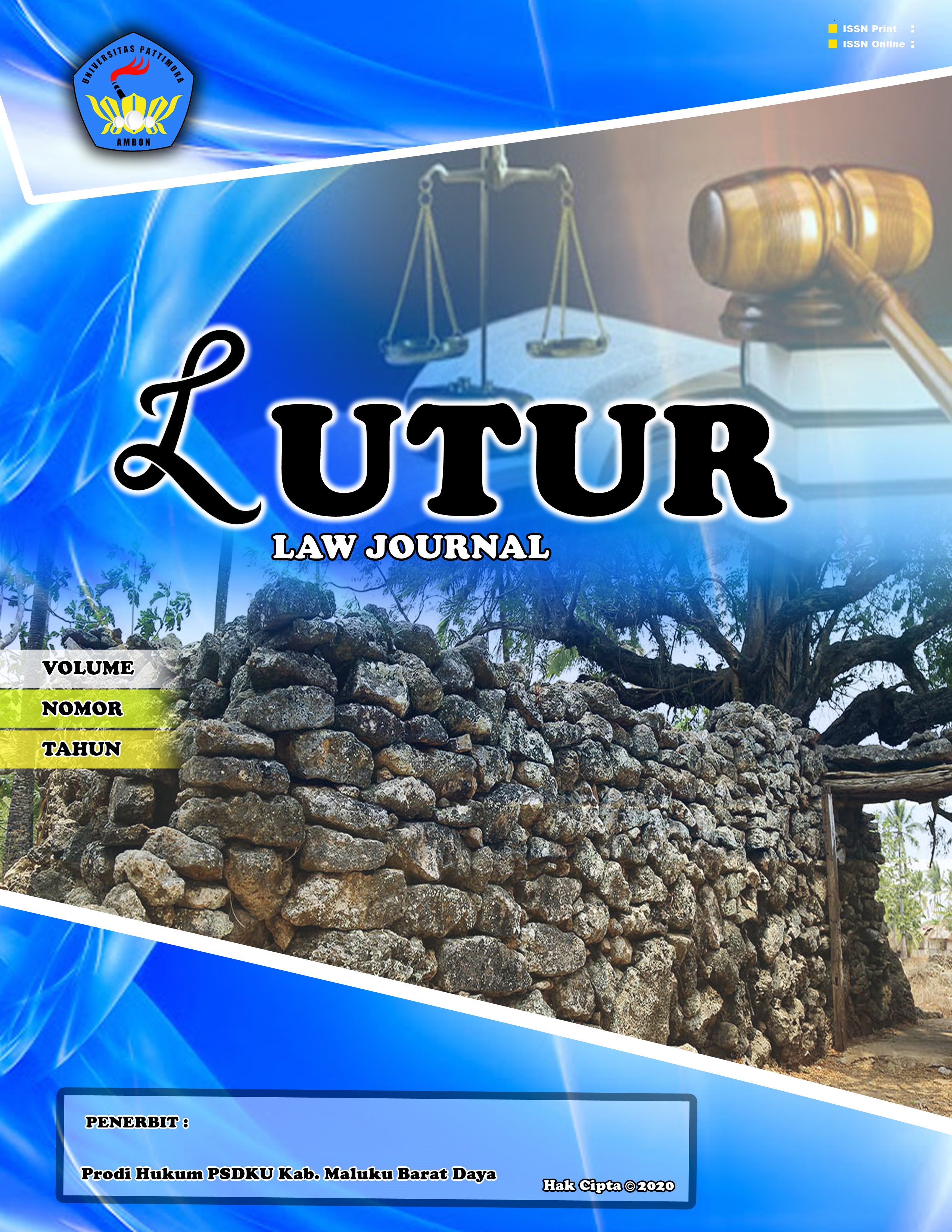Implementation of the Principle of Legal Certainty in Implementation of the State Administrative Court Decision
Abstract
The implementation of the State Administrative Court's decision is a crucial element in upholding the rule of law in the field of state administration. However, the practice often faces obstacles such as non-compliance of State Administrative officials and limitations of execution mechanisms. This study analyzes juridically the procedure for implementing the decision of the State Administrative Court based on Law Number 51 of 2009 concerning the State Administrative Court, focusing on obstacles and potential solutions. This study uses a normative approach with doctrinal analysis and case studies, the results of the study show that automatic execution and strengthening of administrative sanctions are necessary to ensure legal certainty.This study examines the implementation of the principle of legal certainty in the implementation of the decisions of the State Administrative Court in Indonesia. Although the State Administrative Court's decision has binding legal force, challenges in its implementation often erode legal certainty for justice seekers. This article analyzes the legal framework that governs the implementation of the State Administrative Court's rulings, identifies the factors that hinder the certainty of implementation, and offers juridical and institutional solutions to strengthen the implementation of the principle of legal certainty. Using normative legal research methods supported by empirical data from decisions and execution practices, this study argues that regulatory reformulation and strengthening external supervision are crucial to ensure legal certainty and effectiveness of the State Administrative Court.
Downloads
References
Dezonda Rosiana Pattipawae, “Pelaksanaan Eksekusi Putusan Pengadilan Tata Usaha Negara Di Era Otonomi,” SASI 25, no. 1 (2019): 92, https://doi.org/10.47268/SASI.V25I1.151.
Fiqral Jamaludin Hafizh, “Analisis Pasal 116 Undang-Undang Nomor 51 Tahun 2009 Tentang Perubahan Kedua Atas Undang-Undang Nomor 5 Tahun 1986 Tentang Peradilan Tata Usaha Negara Dalam Perspektif Siyasah Qadhaiyyah,” March 21, 2022.
Ismail A Rumadan, “Problematika Eksekusi Putusan Pengadilan Tata Usaha Negara,” Jurnal Hukum Dan Peradilan 1, no. 3 (2012): 435–62, https://doi.org/10.25216/JHP.1.3.2012.435-462.
Jan Michiel Otto, “Rule of Law Promotion, Land Tenure and Poverty Alleviation: Questioning the Assumptions of Hernando de Soto,” Hague Journal of Rule of Law 1, no. 1 (2009): 173–95.
Jeane Neltje & Indrawieny Panjiyoga, Asas-Asas Hukum Administrasi, (Jakarta: Rajawali Press, 2020).
Mahkamah Agung RI, Laporan Tahunan Peradilan Tata Usaha Negara (Jakarta: Sekretariat MA, 2023),
Mark Fenwick dan Stefan Wrbka, (ed.)., The Shifting Meaning of Legal Certainty (Singapore: Springer, 2016).
Philipus M. Hadjon, “Perlindungan Hukum Bagi Rakyat Di Indonesia Sebuah Studi Tentang Prinsip-Prinsipnya,Penanganannya Oleh Pengadilan Dalam Lingkungan Peradilan Umum Dan Pembentukan Peradilan Administrasi Negara” (Bina Ilmu, 1987), https://lib.ui.ac.id.
Satjipto Rahardjo, Ilmu Hukum, (Bandung: Citra Aditya Bakti, 2017).
Samudra Putra Indratanto, Nurainun Nurainun, and Kristoforus Laga Kleden, “Asas Kepastian Hukum Dalam Implementasi Putusan Mahkamah Konstitusi Berbentuk Peraturan Lembaga Negara Dan Peraturan Pemerintah Pengganti Undang-Undang,” DiH: Jurnal Ilmu Hukum 16, no. 1 (2020): 88–100, https://doi.org/10.30996/DIH.V16I1.2729.
Soeleman Djaiz Baranyanan, Nilam Firmandayu, and Ravi Danendra, “Journal of Sustainable Development and Regulatory Issues (JSDERI) The Compliance of Regional Autonomy with State Administrative Court Decisions,” Journal of Sustainable Development and Regulatory Issues 2, no. 1 (2024): 35–52, https://doi.org/10.53955/jsderi.v2i1.25.
Sudikno Mertokusumo, “Penemuan Hukum : Sebuah Pengantar,” (Yogyakarta: Liberty, 2009).
Copyright (c) 2025 Soeleman Djaiz Baranyanan (Author)

This work is licensed under a Creative Commons Attribution-NonCommercial 4.0 International License.
Authors who publish their manuscripts in this Journal agree to the following conditions:
- The copyright in each article belongs to the author, as well as the right to patent.
- Authors are able to enter into separate, additional contractual arrangements for the non-exclusive distribution of the journal's published version of the work (e.g., post it to an institutional repository or publish it in a book), with an acknowledgment of its initial publication in this journal.
- Authors are permitted and encouraged to post their work online (e.g., in institutional repositories or on their website) prior to and during the submission process, as it can lead to productive exchanges, as well as earlier and greater citation of published work.
- Authors have the right to self-archiving of the article (Author Self-Archiving Policy)














